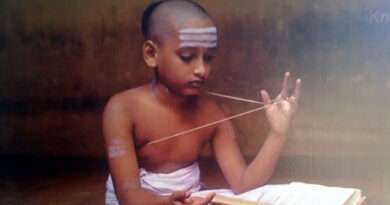Margarita with a straw: Film Review by Raju Behara
Shonali Bose was inspired by her cousin’s life, in the making of the film Margarita With A Straw. The film is a narrative of a girl with cerebral palsy and how she explores the idea of desire and affection in various spaces while balancing the struggles with her daily life.
It also explores her sexuality, coming out to self and to her family, and her dating experiences with remarkable empathy.
Indian mainstream films which portray disabled characters vacillated between two extremes of superhero portrayal wherein the lead had to have a superhero ending, or a narrative of victimhood, wherein the lead has to go through untold sufferings thereby massacring the idea that there could be a much-nuanced portrayal of disability in films.
Margarita with a straw begins on a powerful note, with the lead expressing her resentment & rightful anger towards an award, directed from a position of ableist victimhood, instead of focusing on her fantastic chords and composition being assessed by the judges. This marks the beginning of Laila’s (essayed by Kalki Koechlin) journey in various spaces, personal and academic. Laila’s relationship with her mother (played by Revathy), her coming out journey, the reliability, the tumultuous loss of grappling with her mother’s near-fatal diagnosis, the poignant acceptance of her mother is certainly written with a strong sense of understanding of the parents’ role almost doubling up as a caregiver, a confidante yet navigating the seamless transition to being a controlling snoopy Indian parent who wants to condition her daughters’ porn consumption. One of the most heartwarming scenes is Laila’s failure coming out to her mother, “Aai, main bi(sexual) ban gayi hoon” which takes a rather humorous turn. Their relationship is just so beautifully wrought out by the chemistry the actors shared on screen.
The layered and nuanced narrative of desire was scripted by the beautiful yet painful relationship of Laila with Khanum (Sayani Gupta)., a cherubic and high-spirited Pakistani-Bangladeshi, who started off as her friend and blossoming into her lover. The characters’ relationships are explored without delving deeper into the politics of their identity.
There is a stiffness to the chemistry between Gupta and Koechlin, that easily fits into the dynamics of Laila’s cheating on Khanum, though we crave the edginess that Khanum and Laila bring into their chemistry. The intimacy is so beautifully shot, weaving in excellent cinematography and direction to the scripting of desire.
The film in the end is definitely as its title claims to be, a delightful Margarita, served with a straw in all its colorful twists and turns.
Author: Raju Behara




